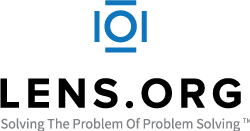ANALISIS PENDAPATAN USAHA BABI POTONG PADA TUKANG POTONG BABI TRADISIONAL PADA DESA DARMASABA KECAMATAN ABIANSEMAL KABUPATEN BADUNG
DOI:
https://doi.org/10.58878/jissiwirabuda.v1i2.233Keywords:
Pigs, Income, Grade B, Grade C, ConstraintsAbstract
Pigs have a very important role for the people of Bali, both from an economic and socio-cultural perspective. Darmasaba Village, Badung Regency is one of the areas known as the central place for slaughtering and selling pork. Business actors need to develop and increase the productivity of the pig farming business by taking into account the business opportunity factor in accordance with the sales volume and demand for pork, including the conditions of pork traders, both in supermarkets and semi-modern (fresh markets), as well as traditional markets. The purpose of this study was to determine the income from the slaughter pig business at traditional pig slaughterers in Darmasaba Village. From the results obtained for each traditional cutting in Darmasaba village, sales are carried out only at Grade B and Grade C prices. Net income (profit) is 3,910,000/head (in 100 kg) for grade B and Rp. 1,440,000/head (in 100 kg) for grade c. The several obstacles faced by pig farming actors in Darmasaba Village, Abiansemal District, Badung Regency, include (1) Fluctuating Pork Prices, (2) Some Pig Traders still use Traditional Scales, (3) Sometimes poor quality pigs, (4) Stock pigs which are sometimes scarce, (5) There is no veterinarian in traditional butchers.


 TEMPLATE JURNAL
TEMPLATE JURNAL



